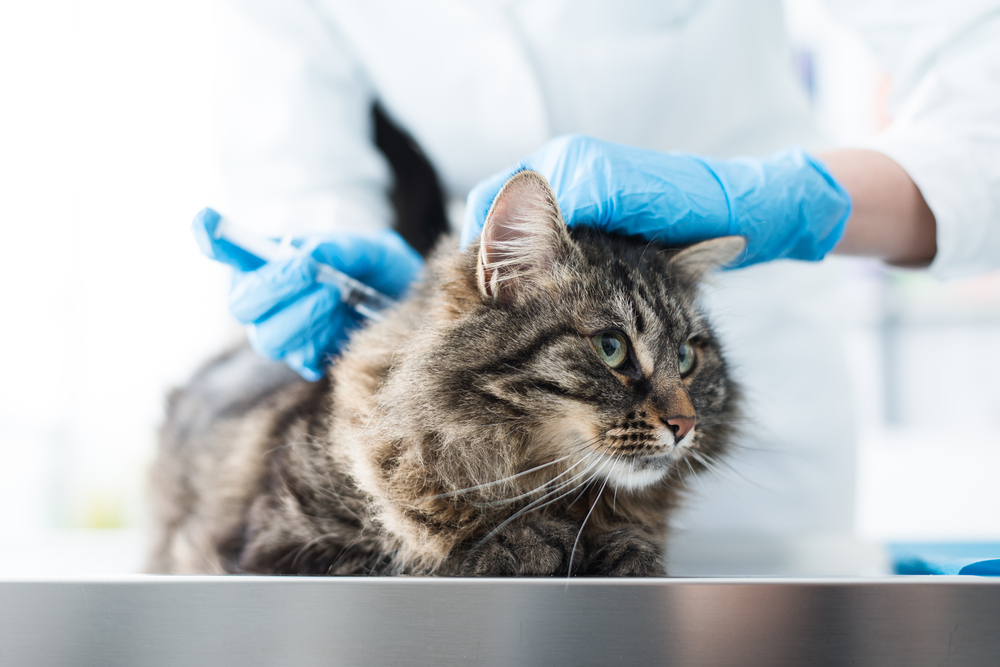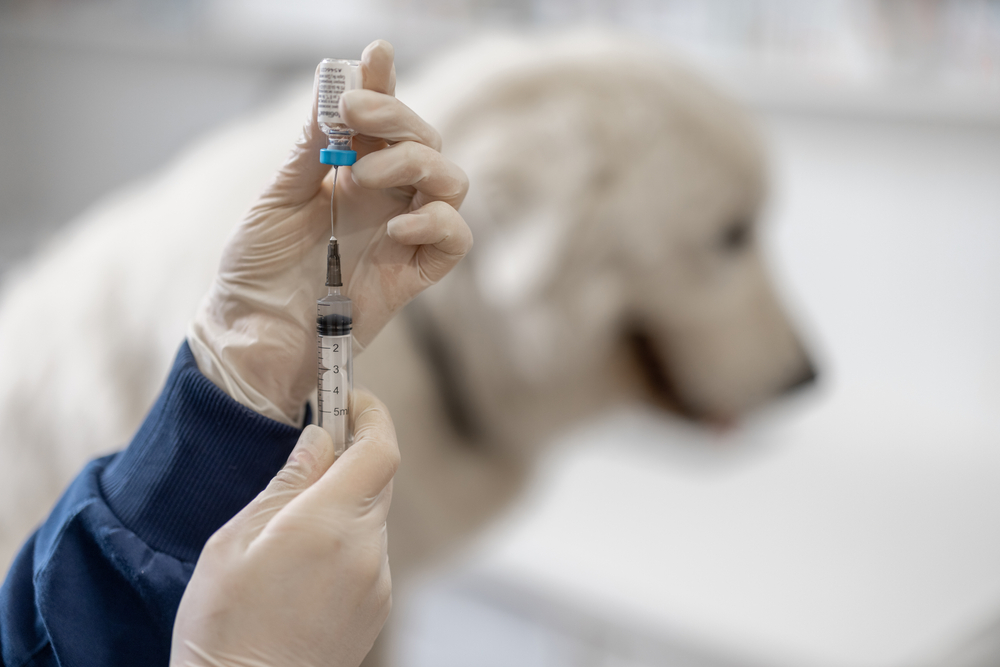Vaccines play an instrumental role in your pet’s preventive care. But, because vaccines are so commonplace, owners can easily overlook their tremendous power and significance in their pet’s lifelong health. If you’ve ever wondered whether your pet’s routine vaccines are necessary, check out this Juanita Hills Animal Hospital guide to commonly vaccinated diseases.
How your pet’s vaccines work
Each vaccine administered to your pet includes tiny, inert (i.e., neutralized and unharmful) virus particles that the immune system identifies as a foreign invader, studies, and creates a highly specific protective response (i.e., antibodies and an immune memory). Then, when the pet encounters the real virus in their natural environment, the immune system recognizes the invader and responds without delay by producing and unleashing the appropriate antibodies to neutralize the threat and prevent harm.
Because the immune response may weaken with time or if your pet’s health changes, booster vaccines are occasionally administered to safely test and remind the immune system about the virus and ensure a prompt and protective response.
Commonly vaccinated diseases in pets
Your pet is unique, and so are their health needs. At Juanita Hills Animal Hospital, we customize an individualized vaccine protocol for every patient, with recommendations that match their age, species, health, and lifestyle. This tailored approach ensures appropriate disease protection without unnecessary vaccination. Depending on your pet’s exposure risks (e.g., boarding, grooming, training, outdoor activities), specific elective or lifestyle vaccines may be added or removed from their protocol, as needed.
Here’s a brief overview of the diseases that the vaccines we most commonly administer can protect your pet against.
- Rabies virus in pets — Rabies is a deadly virus found throughout the world that infects mammals, including humans, wildlife, and domestic pets, through bite wounds. Once inside the pet, the virus attacks the nervous system, causing unexplained behavior changes and progressive paralysis. Rabies is 100% fatal in animals. Post-exposure treatment is available for humans, but is life-saving only when administered before clinical signs appear. Because rabies is a human health threat, pet vaccination is required by state and local law.
- Feline panleukopenia in cats — Feline panleukopenia is a devastating virus that most commonly affects kittens. The virus attacks rapidly dividing cells in the gastrointestinal (GI) tract and the bone marrow, causing profound illness, dehydration, and death. Without an early diagnosis and aggressive supportive care (e.g., hospitalization), 90% of affected kittens do not survive. Fortunately, routine vaccination protocols have successfully reduced this once widespread cause of feline death.
- Feline calicivirus in cats — Calicivirus is an upper respiratory virus most commonly seen in large cat populations. The virus is transmitted through close contact with infectious secretions (e.g., sneezing, coughing, eye or nasal discharge). Clinical signs include upper respiratory signs, congestion, and mouth ulcers, and may progress to pneumonia or systemic infections throughout the body in severe cases. Treatment involves antibiotics and supportive care.
- Feline viral rhinotracheitis (FVR) in cats — Feline viral rhinotracheitis (i.e., feline herpes virus) is another respiratory virus that spreads rapidly through unvaccinated cat populations. Although clinical signs are treatable, affected cats become lifelong carriers, and may shed the virus and experience flare-ups during stressful times.

- Feline leukemia (FeLV) in cats — Feline leukemia virus is spread through close prolonged contact, such as mutual grooming or bite wounds. Infected cats may show no initial clinical signs or only recurring mild illness, but FeLV eventually emerges, and the cat’s health progressively deteriorates and may result in cancer, chronic infections, neurological signs, and weight loss. FeLV-positive cats can live relatively normal lives until the disease enters its final stages, but the disease is ultimately fatal.
- Canine parvovirus in dogs — Parvovirus is a heartbreaking contagious virus that commonly affects puppies and incompletely vaccinated dogs. The virus is shed in the feces, can live for long periods in the environment, and is transmitted on clothing, shoes, and objects. Parvovirus attacks rapidly multiplying cells in the puppy’s bone marrow and intestinal tract, causing persistent vomiting, diarrhea, and dehydration, and severely compromising the immune system. Parvovirus is generally fatal without intensive hospitalized care.
- Canine distemper virus in dogs — Distemper virus is a multi-system illness that affects the GI, nervous, and respiratory systems and is commonly seen in puppies and incompletely vaccinated adult dogs. Distemper is shed through close contact with respiratory secretions, and clinical signs may include fever, lethargy, eye and nasal discharge, reduced appetite, and vomiting. Neurological signs may include circling, muscle tremors, and seizures. Patients must be completely isolated to prevent virus spread, and require intravenous fluids and medication to control clinical signs.
- Bordetella in dogs — Bordetella bronchiseptica (i.e., kennel cough) is a canine upper respiratory infection characterized by a harsh, dry cough that occurs frequently in highly populated environments (e.g., boarding or training kennels, grooming and veterinary facilities). Although generally self-limiting, some dogs require antibiotic therapy to prevent secondary pneumonia.
- Canine influenza virus in dogs — Canine influenza virus (CIV) causes a respiratory infection and signs similar to kennel cough. Dogs are commonly vaccinated for two known strains, referred to as H3N8 and H3N2. CIV outbreaks are most common in areas where dogs are kept in close quarters (e.g., shelters and boarding facilities). Infected dogs may or may not exhibit visible signs, which are generally mild and may be self-limiting. Severely affected dogs require hospitalization for fever or secondary infections.
Vaccines efficiently and economically ensure your pet is protected against the most common infectious diseases. Your Juanita Hills Animal Hospital veterinarian is a great resource for any questions or concerns you have about vaccine benefits and safety. Contact our caring team to ensure your pet is up-to-date on their preventive care, or to schedule an appointment.



















Leave A Comment